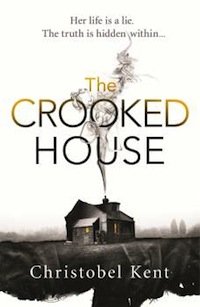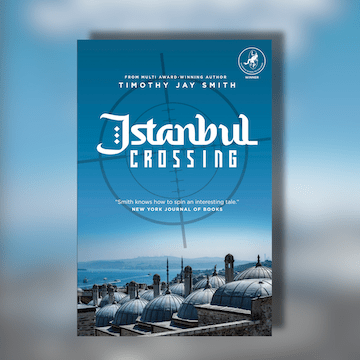Following a series set in Florence featuring private investigator Sandro Cellini, Christobel Kent has shifted the action to an English estuary village for her 10th novel. It feels like a fresh start for the author, who’s been taken on by a different publisher. There’s not even any mention of her previous books on the cover, so anyone picking it up might imagine she’s new.
However, Kent’s experience is apparent from the start of this standalone novel as she explores the psychology of a survivor who’s had to make a new life in the wake of a family tragedy. Thirteen years later, Alison is drawn back to the scene of the crime in the isolated village where the massacre took place. Her mother, brother and twin sisters were apparently gunned down by her drunken father. He turned his shotgun on himself, but survived with serious brain damage. As the police pointed out to Alison (then known as Esme), she would have been dead too if her father had known she was upstairs.
Although Alison was a blameless teenage victim, who was sent away to an aunt in Cornwall with a new identity, the crime was so appalling that she must conceal her secret past as if tainted by the shootings. She holds down a job in accounts at a publishing company in London and tries to avoid attention. But then she’s forced to confront the past when her new boyfriend, military historian Paul Bartlett, asks her to accompany him to a wedding in Saltleigh. Of course, it’s the village where she lived in the crooked house, the scene of the massacre.
The Crooked House is the sort of book you glance at out of curiosity and then find yourself having read 50 pages. When Kent enters the mind of Alison/Esme, the exploration of survivor guilt is compelling. Alison has been told what happened by the police yet she only witnessed the aftermath, so she’s missing key information – and any sense of closure. As Kent delves deeper, there’s even the suggestion that perhaps it was Esme who wielded the weapon. The police had to consider her a suspect, at least until the evidence stacked up against her father.
The Crooked House was all set to be a classic psychological crime novel about an orphan confronting the secrets surrounding a violent crime in her past. But it soon takes a turn into whodunnit territory with less satisfying results. Alison is encouraged to visit Saltleigh for a short break with Paul in the run-up to the wedding. The bride happens to be his spoiled, bitchy ex-girlfriend, Morgan, which adds to the agony of returning home for Alison.
Thirteen years may have passed yet Alison is soon reacquainted with villagers she knew as a teenager, which feels unrealistic (even here, surely life would move on). She has a new haircut and a different name, yet it’s as if everyone’s been waiting for her to come back. Alison’s reappearance does provoke the murder of one of her father’s fellow drinkers, who’s found dead on the marshland. So she’s a person of interest to DS Sarah Rutherford, who just happens to be the officer who took her from the house 13 years ago.
While there isn’t much actual crime in this novel’s contemporary scenes, there is a sense of foreboding surrounding the village. It may be a small place but the author piles on a history of really bad things, real or imagined: paedophilia, a hit-and-run that killed a teenage boy, a baby killed in a house fire, beatings, boating accidents, even the fear of cancer caused by the (now decommissioned) power station. DS Rutherford suspects the village is poisoned by some malevolent force.
Unfortunately, The Crooked House is so busy in its plotting and episodic cliffhangers that the suspense begins to wane. It might have worked better if perspectives had been switched more frequently from Alison to supporting characters such as Rutherford. Christobel Kent is a talented author who can create a sinister scenario, but this novel promised more than it ultimately delivered.
Sphere
Print/Kindle/iBook
£7.49
CFL Rating: 3 Stars










